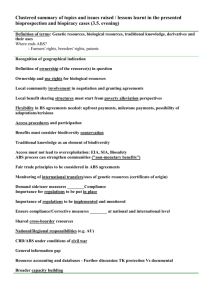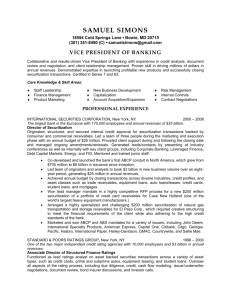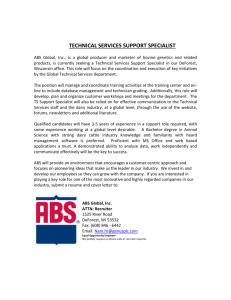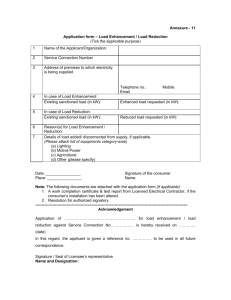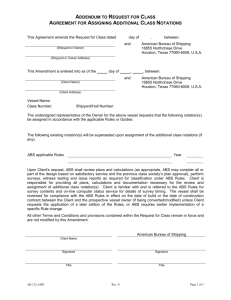Credit Quality and Enhancement
advertisement
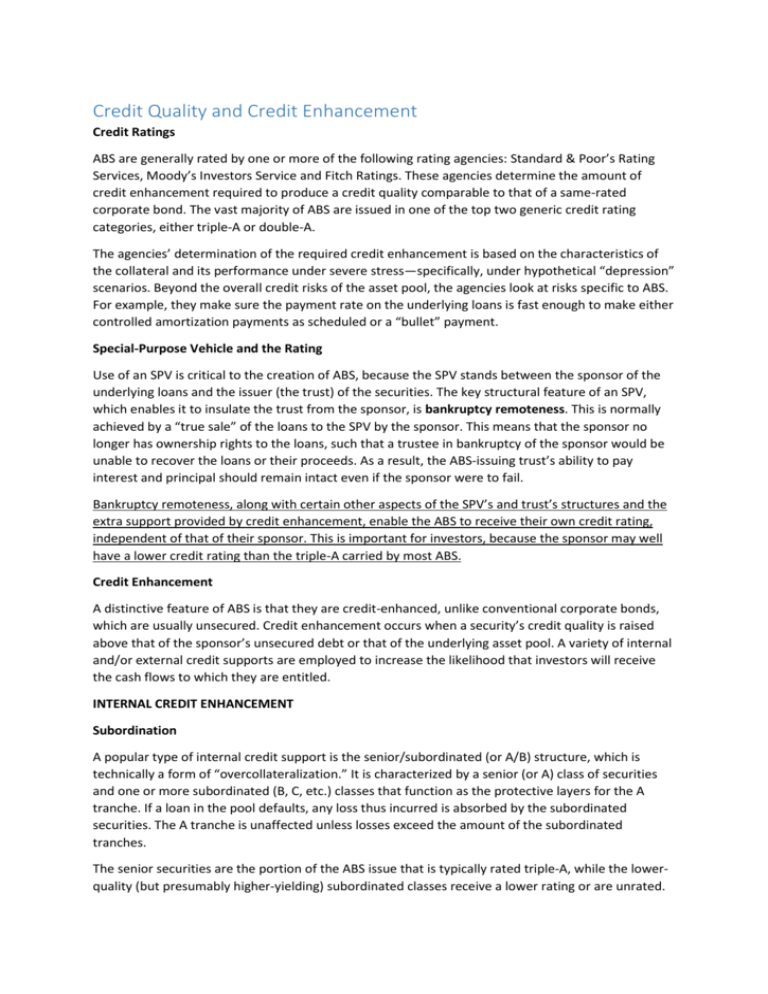
Credit Quality and Credit Enhancement Credit Ratings ABS are generally rated by one or more of the following rating agencies: Standard & Poor’s Rating Services, Moody’s Investors Service and Fitch Ratings. These agencies determine the amount of credit enhancement required to produce a credit quality comparable to that of a same-rated corporate bond. The vast majority of ABS are issued in one of the top two generic credit rating categories, either triple-A or double-A. The agencies’ determination of the required credit enhancement is based on the characteristics of the collateral and its performance under severe stress—specifically, under hypothetical “depression” scenarios. Beyond the overall credit risks of the asset pool, the agencies look at risks specific to ABS. For example, they make sure the payment rate on the underlying loans is fast enough to make either controlled amortization payments as scheduled or a “bullet” payment. Special-Purpose Vehicle and the Rating Use of an SPV is critical to the creation of ABS, because the SPV stands between the sponsor of the underlying loans and the issuer (the trust) of the securities. The key structural feature of an SPV, which enables it to insulate the trust from the sponsor, is bankruptcy remoteness. This is normally achieved by a “true sale” of the loans to the SPV by the sponsor. This means that the sponsor no longer has ownership rights to the loans, such that a trustee in bankruptcy of the sponsor would be unable to recover the loans or their proceeds. As a result, the ABS-issuing trust’s ability to pay interest and principal should remain intact even if the sponsor were to fail. Bankruptcy remoteness, along with certain other aspects of the SPV’s and trust’s structures and the extra support provided by credit enhancement, enable the ABS to receive their own credit rating, independent of that of their sponsor. This is important for investors, because the sponsor may well have a lower credit rating than the triple-A carried by most ABS. Credit Enhancement A distinctive feature of ABS is that they are credit-enhanced, unlike conventional corporate bonds, which are usually unsecured. Credit enhancement occurs when a security’s credit quality is raised above that of the sponsor’s unsecured debt or that of the underlying asset pool. A variety of internal and/or external credit supports are employed to increase the likelihood that investors will receive the cash flows to which they are entitled. INTERNAL CREDIT ENHANCEMENT Subordination A popular type of internal credit support is the senior/subordinated (or A/B) structure, which is technically a form of “overcollateralization.” It is characterized by a senior (or A) class of securities and one or more subordinated (B, C, etc.) classes that function as the protective layers for the A tranche. If a loan in the pool defaults, any loss thus incurred is absorbed by the subordinated securities. The A tranche is unaffected unless losses exceed the amount of the subordinated tranches. The senior securities are the portion of the ABS issue that is typically rated triple-A, while the lowerquality (but presumably higher-yielding) subordinated classes receive a lower rating or are unrated. Overcollateralization In this case, the face amount of the loan portfolio is larger than the security it backs. Yield Spread (Excess Servicing) Excess servicing, which is the first defense against losses, comprises the difference between the coupon on the underlying collateral and the security coupon. EXTERNAL CREDIT ENHANCEMENT In addition to internal credit supports, some ABS use external credit enhancement from a third party. Surety Bonds A surety bond is an insurance policy provided by a rated and regulated insurance company to reimburse the ABS for any losses incurred. Often the insurer provides its guarantees only to securities already of at least investment-grade quality (that is, BBB/Baa or equivalent). Usually this requires one or more levels of credit enhancement that will cover losses before the insurance policy. An insured ABS is rated equal to the claims-paying rating of the insurance company, typically tripleA, because the insurance company guarantees the timely payment of principal and interest on the security.
